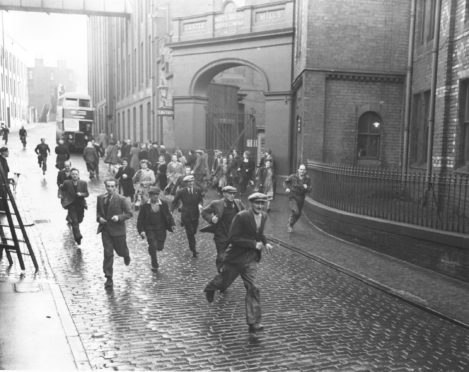
It became synonymous with the Wellington boot that saved so many British troops from trench foot during the First World War.
But to those who worked at the North Bridge Rubber Company in Edinburgh, the vast site was more than just a place of work.
When Richard Bell walked into the Fountainbridge factory in 1965 as a 17-year-old school leaver, he was in awe not just of the manufacturing processes, but the people.
Yesterday, the rubber factory’s last remaining building reopened its doors as it became the new premises for Edinburgh Printmakers and an arts centre.
And Richard, who went on to become president of an international timing belt business, says he’s pleased the Castle Mills site is no longer at risk nearly 50 years after the factory closed.
“It’s a symbol of the site’s heritage,” said Richard. “I’m delighted to see it’s not going to be torn down. I can’t wait to see it.
“I joined straight from school. The whole atmosphere of the place was unbelievable. There were so many characters and tremendous camaraderie – there was never a strike in its history.”
Richard credits the can-do spirit of the factory during the world wars for its enduring positive atmosphere.
The First World War brought demand for a waterproof boot for the trenches and NBRC’s welly was the admiration of all. Working 24 hours a day, the factory produced 1,185,036 pairs.
This carried on in the Second World War with gas masks and army vehicle tyres also made there. There were 9,000 people employed in the factory at this time.
The first exhibition to open in the new Edinburgh Printmakers is based, appropriately, in rubber.
German artist Thomas Kilpper has covered the gallery floor in carved rubber portraits of people who lived and worked on the site.

Enjoy the convenience of having The Sunday Post delivered as a digital ePaper straight to your smartphone, tablet or computer.
Subscribe for only £5.49 a month and enjoy all the benefits of the printed paper as a digital replica.
Subscribe